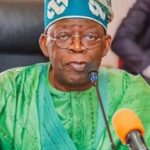[By Idowu Faleye: +2348132100608]
The recent clamour for military intervention in Nigeria as a result of frustration with the country’s slow pace of economic progress, reveals a loss of memory or perhaps ignorance of the brutal experiences during military regimes. For those familiar with Nigeria’s past, such calls bring back haunting memories of suppression, suffering, assassinations, terror, horrors and brutality. The struggle for democracy was a hard-won battle, earned through the sacrifices of many who dared to challenge the chains of military rule. Hence, educating younger generations about military regimes’ impacts, and appreciating the value of civil governance can help prevent a repeat of past mistakes.
Military regimes in Nigeria were marked by rampant human rights abuses, media clampdowns, and a systemic disregard for civil liberties. Some may argue that a military government might restore order. However, history attests that no military rule, no matter how “benevolent,” can offer the freedom, stability, and growth inherent to democracy. The value of democracy should not be underestimated, especially given the tumultuous struggles that birthed it in Nigeria. When the military controlled the country, freedom was limited, economic and political instability was rife, and many paid the ultimate price for standing against tyranny.
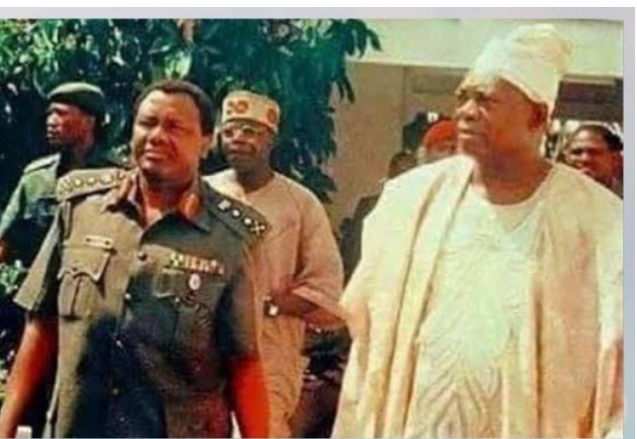
Freedom of speech—one of our most cherished rights today—was not handed to us freely. It was fought for, bled for, and won through the sacrifices of many. But today, there’s an unsettling clamour among some calling for the military to come back and clamp down on our media. They’re using the same freedom to call for silencing that very freedom, risking returning to the dark days when voices were muted, and antagonism was a crime.
For those who may be unaware, the brutality of military regimes in Nigeria left an indelible scar on its history. Figures like Dele Giwa, the outspoken journalist assassinated by a parcel bomb in 1986, remind us of the cost of free expression under military rule. Dele’s crime was shedding light on corruption. Kudirat Abiola, the wife of Moshood Abiola, Nigeria’s democratically elected president was another tragic figure. She was gunned down in 1996 while campaigning for her husband’s release and Nigeria’s democracy. The assassinations of environmental activist Ken Saro-Wiwa and businessman Alfred Rewane are also grim reminders of the military’s brutality.
Read Also: Outdated Laws, Modern Realities: The Urgent Need to Modernize Nigeria’s Legal Framework
Military rule also forced many into exile, including Nobel laureate Wole Soyinka, who criticized military governments and fled Nigeria to avoid persecution. Media houses that dared to speak out, like The Guardian, Tell Magazine, and Punch, faced harassment, frequent shutdowns, and raids. The list of those victimized by Nigeria’s military rule is extensive, underscoring the pervasive climate of fear and the price people paid for pursuing democracy.
Do we remember what it was like to live under the iron fist of military rule? To live in fear, looking over our shoulders, with every word we spoke or wrote weighed against our safety? When heroes like Dele Giwa, Ken Saro-Wiwa, Gani Fawehinmi, and many others paid the ultimate price for speaking truth? The blood of these brave souls paved the path we walk on today, yet here we are, forgetting that hard-won freedom can be stripped away in an instant if we’re not careful.
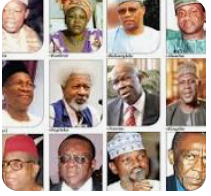
The horrors of the military regimes in Nigeria were not just about soldiers in uniforms and tanks on the streets. They were about ordinary people being silenced, tortured, and even killed simply for daring to question or criticize. Journalists, activists, and advocates faced imprisonment, exile, and, for some, death.
We have the freedom today to write, speak, debate, and dissent without fear of midnight knocking on our doors. But calling for military intervention is inviting a nightmare that many of us don’t fully understand. Do we want to return to a time when newsrooms were raided and journalists went missing? When writers feared penning their truth because they knew that truth could cost them their lives? We stand on the shoulders of those who gave their all for our freedoms, and to call for the military to take that away is to dishonour their memories.
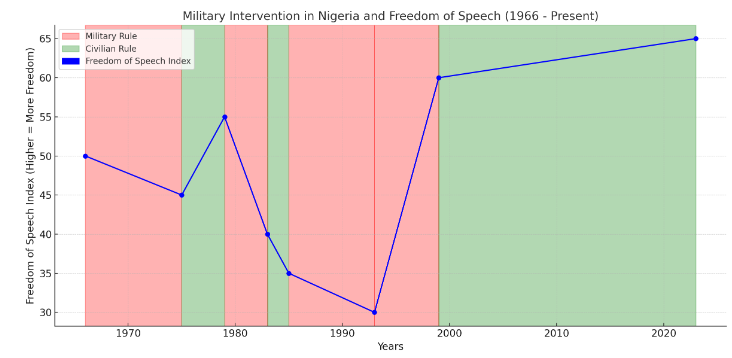
Data Source: Freedom in the World Report: This annual report scores countries based on civil liberties and political rights, including freedom of expression. Freedom House archives past reports that will provide historical scores
Key Elements:
Red-shaded areas indicate periods under military rule.
Green-shaded areas represent civilian rule periods.
The blue line shows the hypothetical trend of the Freedom of Speech Index over time, where a lower index indicates more restrictions on freedom of speech. This visualization provides a clear comparison between military and civilian rule’s impact on freedom of speech, showing the correlation between regime type and speech restrictions.
How quickly we forget that the freedom we use so casually was paid for in blood. The sacrifices of people like Chief MKO Abiola, who dared to dream of a democratic Nigeria, remain fresh wounds in the hearts of those who knew their struggles. Abiola’s life was stolen, and his legacy lives on as a stark reminder that democracy is fragile and hard-fought.
Forgetting the horrors of military rule threatens to reverse Nigeria’s hard-earned gains. A generation that romanticizes military intervention risks repeating the same mistakes that set the country back economically, politically, and socially. Military rule is often marked by restrictions on free speech, arbitrary detentions, extrajudicial killings, and economic mismanagement. Reminding the public of these consequences isn’t just a historical reflection; it’s an urgent warning to those tempted by the allure of military “order.”
Read Also: Be Wary of World Bank’s Advice: A Cautionary Counsel for Nigeria Government
Imagine the voices of those heroes—voices forever silenced—calling out to us now. Imagine them watching as we recklessly ask for the military to return, knowing all too well what that truly means. Their blood is on the soil of this nation, and if we lose the freedom they died for, it will haunt those who allowed it.
To those calling for military intervention: remember that the power of free speech is not to be abused. It is a privilege; one we must protect. It is this freedom that lets us question, critique, and debate openly. If that freedom is destroyed, it will not be an easy battle to win it back. We will be left with regrets and a sorrowful nation that allowed its own voice to be stifled.
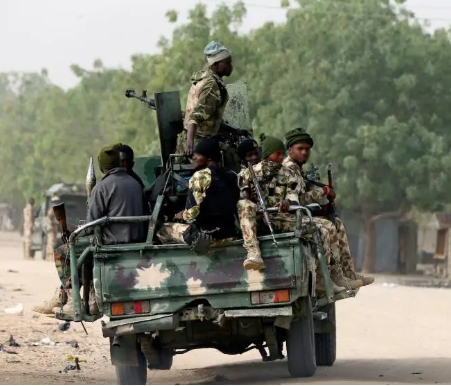
Unlike military regimes, democratic governance provides a system where people can voice discontent, demand accountability, and work towards change. Since transitioning to democracy in 1999, Nigeria has made significant strides. The country now holds regular elections, and citizens are free to form political parties and participate in governance without the looming threat of imprisonment. Civil liberties are respected, and the press has greater freedom to report on government actions. Judicial independence ensures that individuals have recourse to the law, a far cry from the arbitrary rule of military tribunals. Civil society organizations can now advocate freely for human rights and demand government accountability without fearing reprisal.
The alarming calls for military intervention today point to a need for national education on Nigeria’s military past. Many of the young people clamouring for military rule were either too young between 1983 and 1999 or not yet born during the dark years of military rule. This lack of awareness risks fostering a misinformed yearning for a period marked by brutality. Educating the public—especially the youth—about the consequences of military rule and the value of democracy is essential to safeguarding Nigeria’s future.
Read Also: The Undefined System of Government in Nigeria: A Call for True Federalism
Schools, media, and civil organizations have a role in reminding Nigerians of the price paid for the freedoms they currently enjoy. By embracing democratic values and championing transparency, Nigeria can avoid repeating the mistakes of its past. Imagine a scenario where freedom of speech is curtailed, elections are suspended indefinitely, and dissenters are once again imprisoned or worse. Civil institutions would crumble under the weight of militarization, and public accountability would cease to exist.
Returning to military rule risks losing the gains of the last two decades and condemning Nigeria to a future of repression. Nigeria’s democracy, though not perfect, offers the people a voice, a choice, and a chance at justice. The dark years of military rule should serve as a stark reminder of the horrors that arise when power is wielded without accountability. Upholding democracy is not just a patriotic duty but a necessary safeguard against the abuses that defined Nigeria’s military past.
Read Also: Poor Service Delivery in Nigeria: Who Is to Be Blamed for Approving Substandard Projects?
By championing democratic values, remembering the lessons of history, and educating the youth, Nigeria can protect itself from falling back into a cycle of oppression. In Chief Obafemi Awolowo’s words, “The best military government cannot be compared with the worst civil rule.” Military rule, no matter how well-intentioned, fundamentally erodes civil rights and hampers societal progress.
In sum, the recent calls for military intervention reflect a troubling misunderstanding of the realities of military governance. It’s imperative to engage in informed dialogue, dispel myths, and uphold the value of civil rule. As Nigeria continues on its democratic journey, it’s essential to honour the sacrifices of those who fought for freedom, ensuring that the shadows of military rule remain in the past. Let’s honour the memory of our fallen heroes by safeguarding the rights they gave everything to secure. Their blood cries out, a reminder of the terrible price of freedom. To silence it now would be a betrayal of all they stood for.
References:
“Nigeria’s Cycles of Military and Civilian Rule” – Oxford Academic Journals:
Olayiwola, R., & Okorie, N. (2023). “Military Interventions and Public Perception in Nigeria”
The Political History of Nigeria’s Military Era and its Legacy on Civil Rights” – JSTOR:
“Africa’s Military Legacy: A Case Study of Nigeria” by Jackson and Rosberg (1982)
“Nigerian Military Regimes and the Suppression of Free Speech” – Reporters Without Borders:
Born in Ekiti State, Nigeria, Idowu Faleye is a Policy Analyst and IBM-certified Data Analyst with an academic background in Public Administration. He’s the Lead Analyst at EphraimHill Data Consult and the Publisher of EphraimHill DataBlog, which posts regular topics on issues of public interest. He can be reached via WhatsApp at +2348132100608 or email at ephraimhill01@gmail.com.© 2024 EphraimHill DC. All rights reserved.



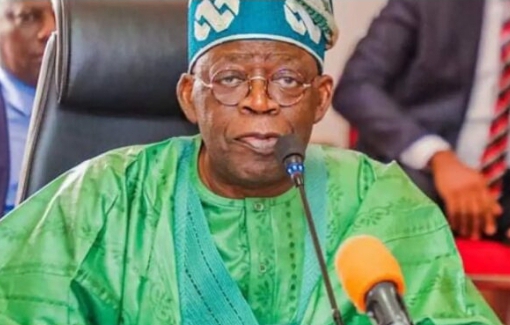







































![The Trend of Insecurity in Nigeria. [Part 2]](https://ephraimhilldc.com/wp-content/uploads/2024/09/Computer-Monitoring-of-Remote-areas.png)


































